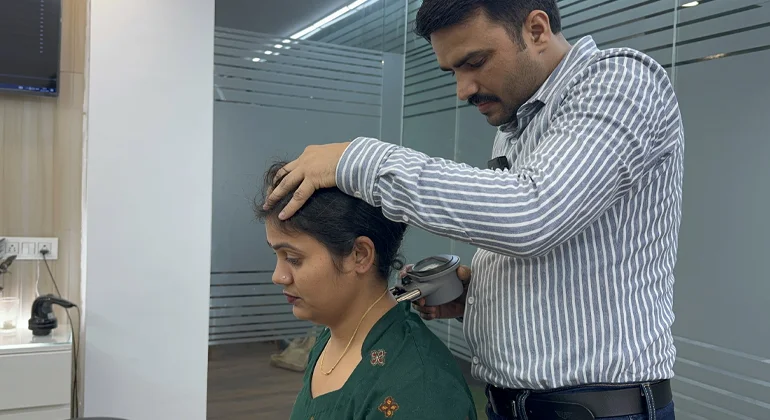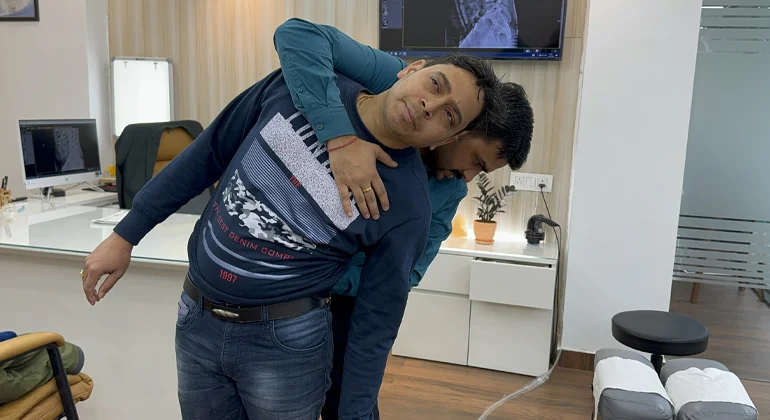Painflame Physiotherapy At Home In GurgaonIn a world where convenience is key and health is of utmost importance, the concept of home physiotherapists has emerged as a revolutionary solution. Gone are the days when individuals had to navigate through traffic, wait in crowded waiting rooms, and adhere to rigid clinic schedules just to receive physiotherapy. …
Painflame Physiotherapy At Home In Gurgaon
In a world where convenience is key and health is of utmost importance, the concept of home physiotherapists has emerged as a revolutionary solution. Gone are the days when individuals had to navigate through traffic, wait in crowded waiting rooms, and adhere to rigid clinic schedules just to receive physiotherapy. With home physiotherapists, expert therapy is brought right to your doorstep, offering unparalleled convenience and personalized care.
What are Home Physiotherapists?
A home physiotherapist is a healthcare professional who provides physical therapy services to patients in the comfort of their own homes. These therapists are trained to assess and treat a variety of musculoskeletal, neurological, and cardiopulmonary conditions. They design personalized treatment plans to help patients regain mobility, reduce pain, and improve overall function. Home physiotherapy is often preferred by individuals who have difficulty accessing traditional clinic-based services due to mobility issues, transportation limitations, or other factors. Having physiotherapy at home can also offer the convenience of receiving treatment in familiar surroundings, which may promote faster recovery and better outcomes for some patients. Physiotherapy can help with lots of different issues, including:

1. Muscle and Joint Problems: Physiotherapy is great for fixing problems with muscles, bones, joints, and other body parts. This includes things like strains, sprains, broken bones, arthritis, and back pain.
2. Nerve and Brain Issues: Physiotherapy is also helpful for people who have problems with their nerves or brain. This could be from things like a stroke, spinal cord injury, multiple sclerosis, Parkinson’s disease, or a head injury. Physiotherapists work on improving how well people can move, their strength, balance, and being able to do things on their own.
3. Heart and Lung Conditions: If someone has problems with their heart or lungs, like after heart surgery or with a lung disease, physiotherapy can help them get stronger, improve their breathing, and build up their stamina.
4. Children’s Health: Physiotherapists also work with kids who have different issues like slow development, birth defects, injuries, or problems with their nerves. They help kids get better at moving, balance, and doing things by themselves.
5. Older Adults’ Health: For older people, physiotherapy can help with staying active, avoiding falls, managing arthritis, and dealing with things like weak bones. It’s all about helping them keep doing the things they love for as long as possible.
Physiotherapy treatments can include things like special massages, exercises, using machines that help muscles and joints, hot or cold packs, and teaching people how to sit, stand, or move in ways that are good for their body.
Overall, physiotherapy is all about making sure people can move well, feel good, and live their lives to the fullest. It’s about helping them be as independent and happy as they can be.
Home physiotherapists play a crucial role in enhancing mobility, reducing pain, and improving overall quality of life for individuals dealing with various musculoskeletal conditions, injuries, or disabilities. However, accessing these vital services can often be challenging, especially for those with limited mobility, busy schedules, or living in remote areas. This is where HomeCare Physio steps in to bridge the gap between accessibility and quality healthcare.
Imagine being able to receive professional physiotherapy treatment within the comfort and familiarity of your own home. No more rushing to appointments or rearranging your daily routine to accommodate clinic visits. With HomeCare Physio, appointments can be scheduled at your convenience, allowing you to prioritize your health without disrupting your lifestyle.
Benefits of Home Physiotherapists
Home physiotherapists help people with physical problems. It has many good points:
1. Easy for You: HomeCare Physio is super easy because you don’t need to go anywhere. You get professional help right at your home. This saves you time and energy. It’s especially good for busy people, who can’t move easily or have trouble getting to places.
2. Special Help Just for You: With HomeCare Physio, you get special treatment made just for you. The therapists come to your home and see how you live. They learn about what you do every day, how your home is set up, and what problems you have. This helps them make a plan that fits them perfectly.
3. Feels Nice and Familiar: Being treated at home feels cozy and nice. You’re in a place where you feel comfortable, which helps the treatment work better and makes you feel better.
4. You’re More Likely to Keep Going: Research shows that when you get treatment at home, you’re more likely to stick to the plan. You feel more motivated because you’re in a familiar place. This helps you get better faster.
5. Always There for You: HomeCare Physio gives you constant help. The therapists visit you regularly, so they really get to know you. They keep track of how you’re doing, change the plan if needed, and teach you new things. This helps you improve a lot in the long run.
6. Good for Everyone: HomeCare Physio makes it easier for everyone to get the help they need. It’s especially good for people who can’t move well, older folks, those with disabilities, or people who live far away from clinics.

Home Physiotherapists’ Treatment includes
Home physiotherapists’ treatment includes a variety of techniques and interventions aimed at improving movement, reducing pain, and enhancing overall function. Here are some common components of physiotherapy treatment:
1. Manual Therapy: This involves hands-on techniques performed by the physiotherapist to mobilize joints, manipulate soft tissues, and improve muscle flexibility. Manual therapy techniques may include massage, joint mobilization, manipulation, stretching, and myofascial release.
2. Therapeutic Exercises: Physiotherapists prescribe specific exercises tailored to each individual’s needs and goals. These exercises help improve strength, flexibility, endurance, balance, and coordination. Therapeutic exercises may include resistance training, stretching, range of motion exercises, balance exercises, and functional activities.
3. Electrotherapy Modalities: Electrotherapy modalities use electrical energy to promote healing, reduce pain, and improve muscle function. Common electrotherapy modalities include:
– Transcutaneous Electrical Nerve Stimulation (TENS): Delivers electrical impulses through electrodes placed on the skin to reduce pain perception.
– Ultrasound Therapy: Uses high-frequency sound waves to generate heat deep within tissues, promoting tissue healing and reducing pain.
– Electrical Muscle Stimulation (EMS): Stimulates muscle contractions to improve muscle strength, reduce muscle spasms, and facilitate muscle re-education.
4. Heat and Cold Therapy: Heat therapy, also known as thermotherapy, and cold therapy, referred to as cryotherapy, are frequently employed methods to relieve pain, diminish swelling, and encourage the healing of tissues.Heat therapy includes techniques such as hot packs, warm towels, or warm water baths, while cold therapy includes ice packs, cold compresses, or ice baths.
5. Hydrotherapy: Hydrotherapy involves exercises and treatments performed in water, typically in a heated pool. The buoyancy of water reduces stress on joints and muscles, making it ideal for rehabilitation and pain management. Hydrotherapy can improve strength, flexibility, and cardiovascular fitness while providing a low-impact environment for exercise.
6. Education and Advice: Physiotherapists provide education and advice to patients about their condition, treatment options, and strategies for self-management. This may include advice on posture, ergonomics, activity modification, home exercises, and injury prevention techniques.
In conclusion, Home physiotherapists represent a groundbreaking approach to delivering expert therapy directly to individuals’ doorsteps. By combining convenience, personalized care, and professional expertise, it offers a transformative healthcare experience that prioritizes the needs and comfort of patients. Whether you’re recuperating from an injury, handling a persistent health issue, or prioritizing preventative measures, HomeCare Physio is leading the path toward a future in physiotherapy that’s focused on improved well-being, accessibility, and satisfaction. Say goodbye to long commutes and crowded waiting rooms – with HomeCare Physio, the path to optimal health starts right at your doorstep.






